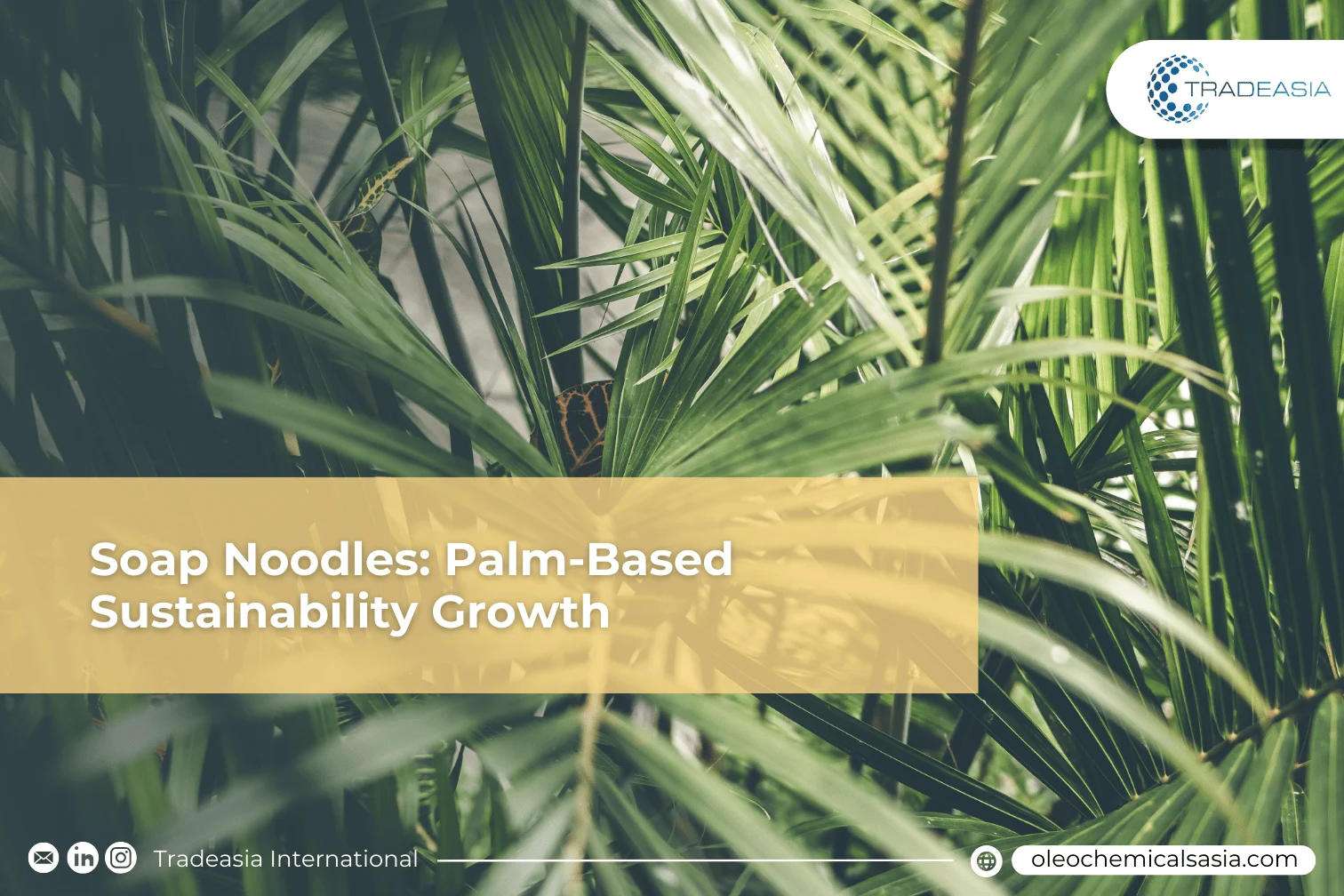Rising Demand and Expanding Opportunities
The global soap noodles market, valued at USD 1.1 billion in 2023, is on track to reach nearly USD 1.7 billion by 2037, advancing at a steady CAGR of 3.2%. Much of this momentum stems from rising consumer awareness of hygiene and a clear preference for natural, plant-based formulations featuring palm, coconut, and olive oils. Asia-Pacific is projected to be the largest contributor, expected to capture close to USD 726.6 million of the market by 2037, supported by its growing population and shifting hygiene standards.
Yet, this growth does not happen in isolation. The soap noodles industry is closely tied to the broader palm oil derivatives market, which is significantly larger at USD 26 billion in 2024 and forecasted to reach almost USD 40 billion by 2032. Palm oil’s unmatched yield efficiency—producing five to ten times more oil per hectare than other vegetable oils—makes it a cornerstone in cosmetics, personal care, and bio-based chemical applications. It is here that global trading partners play a crucial role in ensuring reliable supply and sustainability compliance.
As one industry observer noted, “The future of soap and oleochemicals lies not just in volume, but in the trust behind every shipment of sustainable palm.” Companies like Tradeasia International have become essential connectors in this ecosystem, bridging demand for high-quality palm derivatives with supply chains that increasingly prioritize traceability and eco-certification.
Navigating Regulatory Pressures and Price Volatility
While the growth trajectory is strong, challenges remain. Regulatory pressures, particularly in Europe, are reshaping the industry. The EU’s stringent deforestation laws now demand supply chain transparency and certified sourcing, pushing companies toward RSPO-certified products and eco-friendly soap noodles. This shift is not only regulatory-driven but also market-driven, as consumers gravitate toward products with a lower environmental footprint.
At the same time, volatility in palm oil prices adds another layer of complexity. Prices have recently fluctuated between RM 4,200 and RM 4,700 per ton, driven by unpredictable weather, geopolitical risks, and rising input costs. Businesses must remain agile, balancing procurement strategies with the push to innovate. This environment has spurred the development of premium, biodegradable soap noodles enriched with plant-derived oils—products that align performance with sustainability.
Looking ahead, the dual outlook of steady market growth and rising sustainability imperatives presents both opportunity and responsibility. For palm-based industries, success will hinge on aligning product portfolios with emerging standards, managing price risks effectively, and meeting the surging demand in personal care and bio-based chemical sectors. If executed well, the sector is poised to evolve from a USD 1.1 billion soap noodles market to a nearly USD 40 billion palm derivatives landscape, firmly anchored in sustainability-driven growth.
Sources:
-
Soap Noodles Market Data - https://www.researchnester.com/reports/soap-noodles-market/6238
-
Palm Oil Derivatives Market Data - https://www.oleochemicalsasia.com/market-insights/palm-oil-derivatives-lauric-caprylic-acid-market-2025
-
Soap Noodles Market Data - https://www.gminsights.com/industry-analysis/soap-noodles-market

Leave a Comment